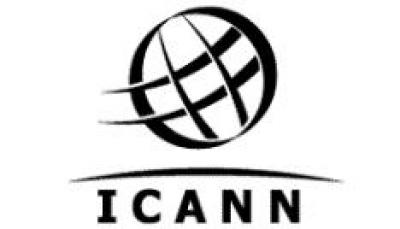

ICANN has said it will push ahead with the launch of generic top-level domains (gTLDs) on Thursday in the face of criticism by businesses and international bodies including the United Nations.
Applications for gTLDs will run from 12 January to 12 April, and will allow the creation of any top-level domain, with a limit of 64 characters. Non-Latin characters will be allowed, and domains may include place names, generic words, brands or other strings of characters.
ICANN expects the system to expand TLDs from the roughly two dozen now in use, including .com and .org, to several hundred.
Such concerns have been addressed ahead of the launch window, according to ICANN chief executive Rod Beckstrom (pictured).
“While we noted the ongoing presence of risks that were identified and highlighted to the Board and community in June, and the mitigation steps that have been taken, each executive indicated approval to proceed,” Beckstrom wrote in a blog post on Friday. “As a result, Chief Operating Officer Akram Atallah and Michael Salazar gave me the green light to move forward.”
Companies will pay a $185,000 (£119 486) fee to ICANN to apply for a gTLD, as well as significant annual fees, ICANN has said.
Last month the UN, the IMF and 26 other international organisations expressed their concerns to ICANN over the potential for gTLD abuse by cyber-squatters. “The IGO (intergovernmental organisation) community concerns relate to the increased potential for the misleading registration and use of IGO names and acronyms in the domain name system,” the organisations said in an open letter.
Beckstrom told Reuters that while ICANN is “very sensitive to those concerns” and plans to respond to the letter, IGOs are protected from cyber-squatters by the gTLD application process.
ICANN said it would give terms protected by international treaties the same protection as trademarks.
“If the United Nations is protected by treaty, (and) someone applies for dot-unitednations, they’ll have lost their $185,000 application fee because … they don’t have the right to use that name,” Jamie Hedlund, ICANN vice president for government affairs, told Reuters.
ICANN has also had to defend itself from critics within the US advertising industry who have predicted that companies will have to spend large amounts on buying up gTLDs to protect their brands.
Beckstrom said that this isn’t the case, as only legitimate rights holders will be approved by ICANN’s board.
“If (those who registered the domain) have no rights to that term, then you’re in a very good position,” Beckstrom told Reuters. “So you don’t need to apply for the term for a top-level domain because you’re concerned that someone who has no rights might apply.”
ICANN has a board of intellectual property experts that it plans to use to resolve conflicting claims to a gTLD.
The Institute of Trade Mark Attorneys in November advised businesses to protect themselves ahead of the gTLD application process by ensuring that they have clear rights to their own brand names through the existing trademark registration system.
Apple fined 150m euros over App Tracking Transparency feature that it says abuses Apple's market…
OpenAI to release customisable open-weight model in coming months as it faces pressure from open-source…
Samsung's Bespoke AI-powered fridge monitors food to create shopping lists, displays TikTok videos, locates misplaced…
Huawei sees 38 percent jump in consumer revenues as its smartphone comeback continues to gather…
In world-first, China approves commercial flights for EHang autonomous passenger drone, paving way for imminent…
Microsoft closes down IoT and AI lab it operated in Shanghai tech district in latest…